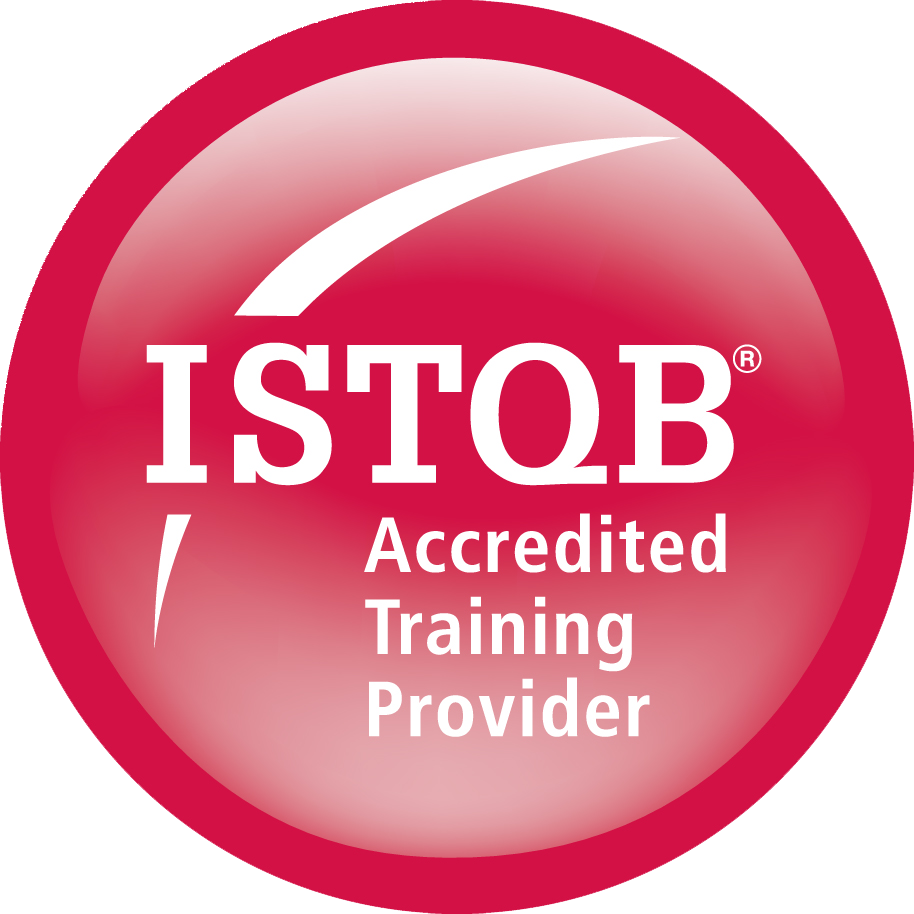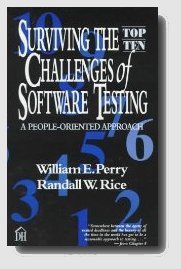
Register for e-Learning Here:
Register for Live Virtual training here.
Contact Us for an in-house course presentation.
e-Learning: 20 hours
Live Virtual: 5 four-hour segments (includes breaks)
In-house classroom: 3 days (4-day version recommended)
Based on the 2023 Foundation Level Syllabus! This is the most recent syllabus. Download the 2023 Foundation Level syllabus here.
Note: The 2023 changes are substantial. The 2018 exam and courses are available until May 1, 2024. Be sure that the materials you use are in sync with the desired syllabus version.
This course is available as in-house (live) training. The E-learning version is now available!
To schedule a private presentation for your company, contact us for details.
"Just wanted to let you know I took the CTFL exam on Friday and got a 95%! Thanks for your online training course and for answering questions as they came up!"
M.H., Florida
This is a course designed for people seeking foundation level certification based on the ISTQB certification program. This course completely covers the most current ISTQB syllabus (2023 version 4.0) and also provides additional information and guidance in key areas. The terms used in this course are taken from the current ISTQB glossary. This course is offered in both live and e-learning formats.
This is suitable for people just getting into the field of software testing, seeking the ISTQB Foundation Level certification (CTFL) or for people who just need a refresher course or validation for their current testing techniques.
This is a practical course to cover the critical path of testing. Your instructor will be Randy Rice, a recognized authority in the QA and testing field. You will learn the terminology, process, and challenges of testing in the real world. As a result of attending this seminar, you should have a good working knowledge of software testing and what it takes to design and conduct an effective test of software, regardless of the technology.
This course will not only help you prepare for certification, but also help you become more comfortable and confident in testing software applications at just about any level of detail: unit, integration, system, and user acceptance. You will emerge from this course knowing how to develop test cases and test plans. You will also leave with the knowledge of how tools can help you perform testing.
Sometimes people feel intimidated by the technical aspects of software testing and lack the confidence they need to be credible test leaders in their organization. Learn the issues and processes for effectively testing software by attending this informative and comprehensive course.
Return on Investment
-
Prepare for the ISTQB foundation level certification exam (CTFL)
-
Understand the key issues in testing software applications.
-
Learn how to design tests that adequately cover requirements and business events.
-
Learn from an industry recognized expert in software testing and quality
-
Advance your career by reinforcing your testing expertise.
Who Will Benefit
-
Test managers and leaders
-
Testers
The program requires only basic IT knowledge or experience. Testing knowledge or experience is not a pre-requisite.
Topics
Module FNDA - Fundamentals of Testing – 180 minutes
- What is Testing?
- Test Objectives
- Testing and Debugging
- Why is Testing Necessary?
- Testing’s Contributions to Success
- Testing and Quality Assurance (QA)
- Errors, Defects, Failures, and Root Causes
- Testing Principles
- Test Activities, Testware and Test Roles
- Test Activities and Tasks
- Test Process in Context
- Testware
- Traceability between the Test Basis and Testware
- Roles in Testing
- Essential Skills and Good Practices in Testing
- Generic Skills Required for Testing
- Whole Team Approach
- Independence of Testing
Module FNDB - Testing Throughout the Software Development Lifecycle – 130 minutes
- Testing in the Context of a Software Development Lifecycle
- Impact of the Software Development Lifecycle on Testing
- Software Development Lifecycle and Good Testing Practices
- Testing as a Driver for Software Development
- DevOps and Testing
- Shift-Left Approach
- Retrospectives and Process Improvement
- Test Levels and Test Types
- Test Levels
- Test Types
- Confirmation Testing and Regression Testing
- Maintenance Testing
Module FNDC - Static Testing – 80 minutes
- Static Testing Basics
- Work Products Examinable by Static Testing
- Value of Static Testing
- Differences between Static Testing and Dynamic Testing
- Feedback and Review Process
- Benefits of Early and Frequent Stakeholder Feedback
- Review Process Activities
- Roles and Responsibilities in Reviews
- Review Types
- Success Factors for Reviews
Module FNDD - Test Analysis and Design – 390 minutes
- Test Case Overview
- Test Techniques Overview
- Black-Box Test Techniques
- Equivalence Partitioning
- Boundary Value Analysis
- Decision Table Testing
- State Transition Testing
- White-Box Test Techniques
- Statement Testing and Statement Coverage
- Branch Testing and Branch Coverage
- The Value of White-box Testing
- Experience-based Test Techniques
- Error Guessing
- Exploratory Testing
- Checklist-Based Testing
- Collaboration-based Test Approaches
- Collaborative User Story Writing
- Acceptance Criteria
- Acceptance Test-driven Development (ATDD)
Module FNDE - Managing the Test Activities – 335 minutes
- Test Planning
- Purpose and Content of a Test Plan
- Tester's Contribution to Iteration and Release Planning
- Entry Criteria and Exit Criteria
- Estimation Techniques
- Test Case Prioritization
- Test Pyramid
- Testing Quadrants
- Risk Management
- Risk Definition and Risk Attributes
- Project Risks and Product Risks
- Product Risk Analysis
- Product Risk Control
- Test Monitoring, Test Control and Test Completion
- Metrics used in Testing
- Purpose, Content and Audience for Test Reports
- Communicating the Status of Testing
- Configuration Management
- Defect Management
Module FNDF - Test Tools – 20 minutes
- Tool Support for Testing
- Benefits and Risks of Test Automation




